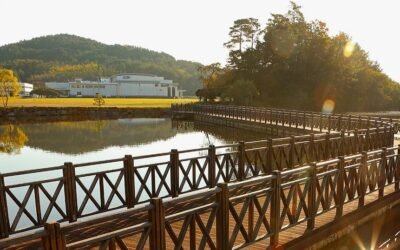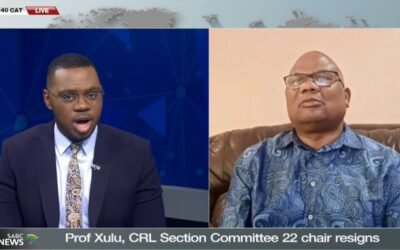The National Assembly grants total power to President Daniel Ortega and his wife, including over creeds and beliefs, under the “clear ambiguity” of Article 14 of the fundamental law of the land.
by Marco Respinti

On January 30, 2025, the National Assembly of Nicaragua approved, on second reading, the announced final reform of the Constitution. The National Assembly is the unicameral parliament of the country, presently dominated by the Frente Sandinista de Liberación Nacional (FSLN). This is a Communist party that tyrannically ruled Nicaragua from 1979 to 1990 under the leadership of Daniel Ortega, leading it into a bloody civil war, and is now in power again.
The reform (the final step after twelve previous amendments during the years) grants President Ortega—who returned to power in 2007, through elections, again at the head of FSLN—a virtual free hand on all legislative, judicial, and electoral levels; in other words, total power. In addition, it establishes the surrealistic title of “co-president” for his wife, Rosario Murillo, on whom Ortega seems to be seriously dependent. It is worth noting that many people in Nicaragua—a country where at least half of the population is made of practicing and active Roman Catholics—regard Doña Murillo with highly worried suspicion because of her connections with occultism (that she openly publicizes, even in kitsch and clumsy ways). This obtained her the popular nicknames “chamuca,” or “she-devil,” and “bruja,” or “witch.”
Several articles of the reformed Nicaraguan Constitution can be singled out to demonstrate the totalitarian characteristics of Ortega’s legal crackdown on the country, as many commentators underlined. “Bitter Winter” focuses on liberty of religion, creed, and belief, and thus it concentrates its attention on Art. 14 of the reformed fundamental law of the land.
Art.14 grants in fact religious liberty in a way that a superficial look could take for satisfactory. But the devil hides in the details, and the ambiguity of the formulation of Art.14 is so evident that it makes it an easy tool of repression-at-will in the hands of the government. Legal observers and organizations dedicated to defend religious liberty in Latin America have been pointing out this since the reform of that article was announced months ago.
“The State is secular,” Art.14 affirms, “and ensures freedom of worship, faith, and religious practices in strict separation between the State and the churches.” If this seems to establish unbounded equal freedom for all, on the contrary the following sentence introduces limitations that makes that article the opposite of what it may seem: “Under the protection of religion,” it reads, “no person or organization may engage in activities that undermine public order. Religious organizations must be kept free from all foreign control.”
This de facto means that (a) religion, creeds and beliefs are suspected of serving as masks for non-religious activities of seditious nature; (b) the free exercise of religion, creed, or belief must be limited when the security of society and state reasons come in; and (c) the international dimension of religious groups can be constructed as posing problems to the state even amounting to treason.
While all this can also refer to legitimate concerns, on the practical side it all depends on the limits that divide licit religious activities and what are instead judged to be illicit. If this seems to be quite evident in theory, in practice it is not. It is instead the problem of the problems: who, in fact, draws the line between the licit expression of religious beliefs and its opposite? Who has the right to do it and by using what criteria?
The easy answer is “the law”—but it isn’t easy at all. In neo-Sandinista Nicaragua, where the reformed Constitution gives total power to President Ortega, judicial power included, “the law” means what Ortega incontestably decides and has the power to impose. The principle would be unacceptable in all democratic countries. In Nicaragua, it would be unacceptable even if Ortega was not, as he is, a persecutor of religion. Under the new Nicaraguan Constitution, this means that the law grants the state the legal power to persecute religions.
It is a “legal”—between brackets—overturn of the rule of law and justice.
Freedom of religion was even proclaimed by the Soviet government through a decree of January 23, 1918, recorded in Art. 124 of the Constitution of the USSR, and religious liberty is granted even by Art. 36 of the Constitution of the People’s Republic of China. In both cases, these Communist regimes (like several other despotic or totalitarian governments) invariably repressed and repress the free exercise of religion, creed, or belief under the same logic of state’s unquestionable supremacy now delivered as a blank check to President Ortega by the reformed Constitution of Nicaragua.

This deliberate twist of the law is easily demonstrated by the constant and indeed increasing persecution waged against the Catholic Church by the neo-Sandinista government of Nicaragua since Ortega’s return to power, once more underlined by serious recent events. Just a handful of days before the approval of the reform of the Constitution, the Nicaragua regime confiscated the property of several religious orders and expropriated the Poor Clare nuns of three monasteries, after the police raided the curia in the city of Matagalpa, on the Rio Grande, and the Franciscans’ Nazareth clinic in San Rafael del Norte, in the department of Jinotega.
The threats posed by Nicaraguan Constitution’s Art.14 to religious liberty are moreover concretely supported by Art. 97, which establishes a new voluntary citizen police to serve as an auxiliary support to national police. While this is reminiscent of the “citizen militias” that the Chinese Communist Party (CCP) has instituted to allegedly maintain public order in cities and villages, in Nicaragua, the initiative serves only to legalize the violent paramilitary squads that, at the Ortegas’ order, bloodily repress protests and dissidents. And of course religious activities.

Marco Respinti is an Italian professional journalist, member of the International Federation of Journalists (IFJ), author, translator, and lecturer. He has contributed and contributes to several journals and magazines both in print and online, both in Italy and abroad. Author of books and chapter in books, he has translated and/or edited works by, among others, Edmund Burke, Charles Dickens, T.S. Eliot, Russell Kirk, J.R.R. Tolkien, Régine Pernoud and Gustave Thibon. A Senior fellow at the Russell Kirk Center for Cultural Renewal (a non-partisan, non-profit U.S. educational organization based in Mecosta, Michigan), he is also a founding member as well as a member of the Advisory Council of the Center for European Renewal (a non-profit, non-partisan pan-European educational organization based in The Hague, The Netherlands). A member of the Advisory Council of the European Federation for Freedom of Belief, in December 2022, the Universal Peace Federation bestowed on him, among others, the title of Ambassador of Peace. From February 2018 to December 2022, he has been the Editor-in-Chief of International Family News. He serves as Director-in-Charge of the academic publication The Journal of CESNUR and Bitter Winter: A Magazine on Religious Liberty and Human Rights.



